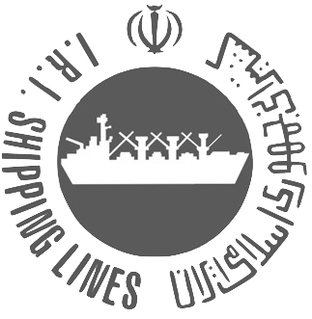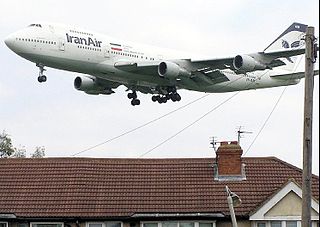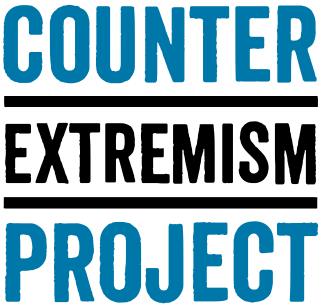
Iran and the United States have had no formal diplomatic relations since 7 April 1980. Instead, Pakistan serves as Iran's protecting power in the United States, while Switzerland serves as the United States' protecting power in Iran. Contacts are carried out through the Iranian Interests Section of the Pakistani Embassy in Washington, D.C., and the US Interests Section of the Swiss Embassy in Tehran. In August 2018, Supreme Leader of Iran Ali Khamenei banned direct talks with the United States.
Iran has several research sites, two uranium mines, a research reactor, and uranium processing facilities that include three known uranium enrichment plants.

Lee Scott Wolosky is an American diplomat and attorney who served under four U.S. presidents in legal and national security positions, most recently as Special Counsel to President Joe Biden. He is currently co-chair of the Litigation Department and a member of the Management Committee at Jenner & Block LLP
Alireza Jafarzadeh is an Iranian dissident, media commentator on the Middle East, and US representative of the People's Mujahedin of Iran. He is known for releasing information on Iran's secret nuclear program.

The relations between Iran and Israel are divided into four major phases: the ambivalent period from 1947 to 1953, the friendly period during the era of the Pahlavi dynasty from 1953 to 1979, the worsening period following the Iranian Revolution from 1979 to 1990, and the ongoing period of open hostility since the end of the Gulf War in 1991. In 1947, Iran was among 13 countries that voted against the United Nations Partition Plan for the British Mandate of Palestine. Two years later, Iran also voted against Israel's admission to the United Nations.

The Islamic Republic of Iran Shipping Line Group, commonly known by its business name IRISL Group, is a shipping line based in and owned by Iran. Its fleet comprises 115 ocean-going vessels with a total capacity of 3.3 million tons deadweight (DWT), with 87 being ocean-going vessels owned by IRISL and the remaining 28 ships being owned under the flags of subsidiary companies, including Khazar Shipping, Valfajr and Iran-India Shipping. They are manned by 6,000 personnel who work under the Iranian flag in the Caspian Sea, Persian Gulf, international waters and various ports of the world.
Military action against Iran is a controversial topic in Israel and the United States. Proponents of a strike against Iran point to the threat presented by Iran's nuclear program as a casus belli. Many Israelis, and particularly hardline politicians such as Prime Minster Benjamin Netanyahu, American neoconservatives, Iranian dissidents support military action to stop the program or go further to overthrow the regime. Opposition to military action is often based in pacifism, but some who are opposed to military action against Iran are opposed for other reasons.

Mahmoud Ahmadinejad is an Iranian principlist and nationalist politician who served as the sixth president of Iran from 2005 to 2013. He is currently a member of the Expediency Discernment Council. He was known for his hardline views and nuclearisation of Iran. He was also the main political leader of the Alliance of Builders of Islamic Iran, a coalition of conservative political groups in the country, and served as mayor of Tehran from 2003 to 2005, reversing many of his predecessor's reforms.

The United States has since 1979 applied various economic, trade, scientific and military sanctions against Iran. United States economic sanctions are administered by the Office of Foreign Assets Control (OFAC), an agency of the United States Department of the Treasury. Currently, United States sanctions against Iran include an embargo on dealings with the country by the United States, and a ban on selling aircraft and repair parts to Iranian aviation companies.
This is the timeline of the nuclear program of Iran.
The 2007 gasoline rationing plan in Iran was launched by president Mahmoud Ahmadinejad's cabinet to reduce that country's fuel consumption. Although Iran is one of the world's largest producers of petroleum, rapid increases in demand and limited refining capacity have forced the country to import about 40% of its gasoline, at an annual cost of up to USD $7 billion.

Mark David Wallace is an American businessman, former diplomat and lawyer who has served in a variety of government, political and private sector posts. He served in several positions during the administration of President George W. Bush, including as the United States Ambassador to the United Nations for UN Management and Reform. As of 2019, Wallace was the CEO of United Against Nuclear Iran (UANI) and the Counter Extremism Project (CEP).
There have been a number of international sanctions against Iran imposed by a number of countries, especially the United States, and international entities. Iran was the most sanctioned country in the world until it was surpassed by Russia, following Russia's invasion of neighboring Ukraine in February 2022.

Brazil–Iran relations are the bilateral relations between the Federative Republic of Brazil and the Islamic Republic of Iran. Relations are characterized by economic and diplomatic cooperation and are quite friendly. Iran has a productive trade balance with Brazil. The two governments signed a document to bolster cooperation during the G-15 Summit in Tehran in 2010. However, since the election of former Brazilian president, Dilma Rousseff, relations between the two countries recently have deteriorated greatly, following Rousseff shifting Brazil away from Iran due to Iran's violation of human and civil rights. Mahmoud Ahmadinejad's media adviser, Ali Akbar Javanfekr, was quoted as stating that Rousseff had "destroyed years of good relations" between them. He denied making such a statement.

United Nations Security Council Resolution 1929, adopted on 9 June 2010, after recalling resolutions 1696 (2006), 1737 (2006), 1747 (2007), 1803 (2008), 1835 (2008) and 1887 (2009) concerning the topics of Iran and non-proliferation, the Council noted that Iran had failed to comply with previous Security Council resolutions concerning its nuclear program and imposed further sanctions on the country.
Content from the United States diplomatic cables leak has depicted Iran and related subjects extensively. The leak, which began on 28 November 2010, occurred when the website of WikiLeaks—an international new media non-profit organisation that publishes submissions of otherwise unavailable documents from anonymous news sources and news leaks—started to publish classified documents of detailed correspondence—diplomatic cables—between the United States Department of State and its diplomatic missions around the world.
The United Nations, Amnesty International, Iranian opposition leaders and others criticized the Islamic Republic of Iran for its high rate of executions in 2011. According to Ahmed Shaheed, the UN Special Rapporteur for Human Rights in Iran, Iran executed a total of 670 people in 2011.
Views on the nuclear program of Iran vary greatly, as the nuclear program of Iran is a very contentious geopolitical issue. Uriel Abulof identifies five possible rationales behind Iran’s nuclear policy: (i) Economy, mainly energy needs; (ii) Identity politics, pride and prestige; (iii) Deterrence of foreign intervention; (iv) Compellence to boost regional influence; and (v) Domestic politics, mitigating, through 'nuclear diversion' the regime’s domestic crisis of legitimacy. Below are considerations of the Iranian nuclear program from various perspectives.

The Joint Comprehensive Plan of Action, commonly known as the Iran nuclear deal or Iran deal, is an agreement on the Iranian nuclear program reached in Vienna on July 14, 2015, between Iran and the P5+1 together with the European Union.

The Counter Extremism Project (CEP) is a non-profit non-governmental organization that combats extremist groups "by pressuring financial support networks, countering the narrative of extremists and their online recruitment, and advocating for strong laws, policies and regulations".











